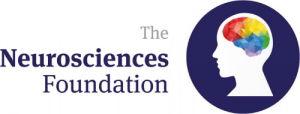Understanding What Causes Memory Problems in Parkinson’s Disease
By Professor Donald Grosset, School of Psychology & Neuroscience, University of Glasgow
Parkinson’s disease is best known for causing a tremors and motor slowness. In addition, many people with Parkinson’s develop memory and other cognitive problems.
There are new treatments in development that are designed to slow down rates of progression in Parkinson’s. They aim to do this by blocking the specific pathways that lead to brain cell damage in Parkinson’s. These could reduce both the motor and cognitive problems, but they would not help the cognitive problems if they had a different cause.
We already know from studies of the brains after people have died, that around one-third of people with Parkinson’s also have markers of Alzheimer’s disease. To properly test the new treatments for Parkinson’s, we need to identify from an early stage those patients with Parkinson’s and memory problems that are caused by their Parkinson’s, and those where the memory problems are due to Alzheimer’s. This would then let us test the new treatments for Parkinson’s in the right group of people.
This would give us a much better chance of finding a treatment that works. It would also reduce the risks of side-effects from a new treatment in those people that would not get benefit from it.
The Neurosciences Foundation funded us to carry out a detailed study of all the previous work that has been done in this area, followed by a new study in which people with Parkinson’s and memory problems were assessed by detailed memory tests. Because different brain areas are affected by Parkinson’s compared to Alzheimer’s, it is possible to work out which patients have one disease process or another.
Problems of recall are much more likely to be due to Alzheimer’s, while problems planning a task is much more likely to be due to Parkinson’s. In the project, several cognitive tests were used to make a detailed ‘brain map’ that showed which patients had one disease type, and which had the other. In a small number of cases, there was a mixture of both. Using this process in future studies of new treatments will help to find new effective treatments sooner.
The results from the project have also helped other parts of our larger research programme. We have linked the results to studies of which genes lead to an increased risk of memory and cognitive problems in people with Parkinson’s. Using analysis of DNA from patients’ blood, we have shown that some people with Parkinson’s have one or more gene fault that is known to lead to Alzheimer’s. Combining the findings from the memory and cognitive tests with the results from the blood tests will help to further improve our accuracy of diagnosing the cause of the memory problems, and to develop treatments targeted to block these disease processes.
This is an excellent example of ‘precision medicine’, where we want to target specific treatments against specific disease pathways. The project funded by the Foundation has helped us to become much more precise about which disease pathway we need to target, in current treatment trials of new types of medication, when a person with Parkinson’s has memory or other cognitive problems.

My mother has parkinson’s, she is 63 and has had it for 5 years. Her brother, my uncle, also has it. If either of them could be utilized in any studies, feel free to reach out to me.